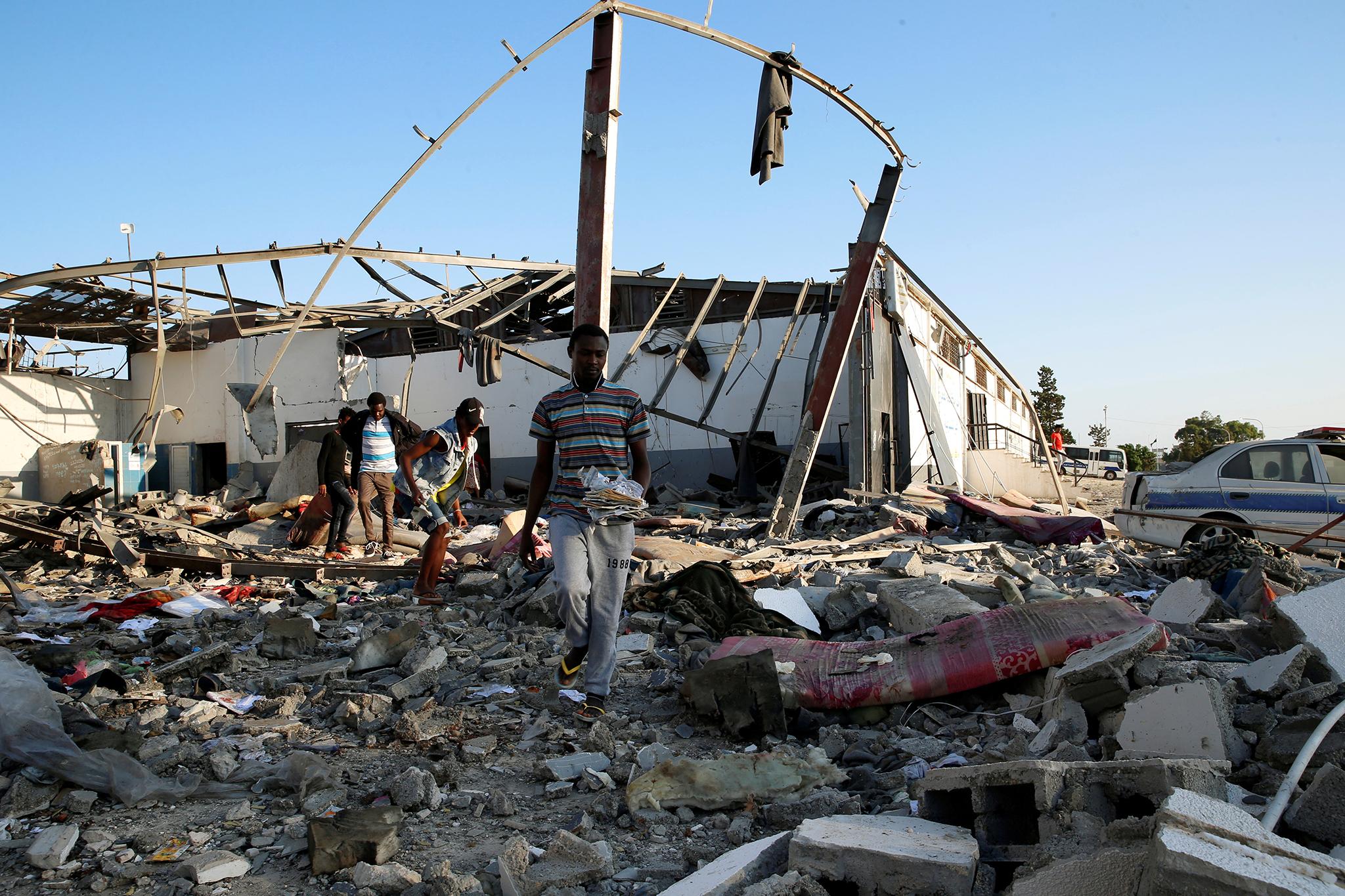Rwanda, one of the world's poorest countries, offers to take in migrants detained in Libya
Refugees held in Libya face beatings, rape and forced labour, aid groups warn

Rwandan officials have offered to help evacuate refugees being held in dire conditions in Libyan detention centres.
The central east African country, which is nine times smaller than the UK, is one of the world’s least developed states according to the United Nations (UN).
However, assisted by the African Union and the UN’s refugee agency, it has agreed to serve as a base of operations for an initial group of 500 refugees and migrants from a number of African countries being held in Libya - where UN officials say some 4,700 people are currently being detained in "dire conditions".
It comes after an air-strike on Libyan detention centre in July led to the death of 80 people, amid increasing concern over the treatment of detainees in the country.
Evacuation flights are due to begin in the coming weeks, with the majority of voluntarily released detainees originally coming from the Horn of Africa countries to the continent’s east.
In a joint statement between the government of Rwanda, the United Nations High Commissioner for Refugees (UNHCR) and the African Union, a spokesperson said: “While some may benefit from resettlement to third countries, others will be helped to return to countries where asylum had previously been granted, or to return to their home countries if it is safe to do so.
“Some may be given permission to remain in Rwanda subject to agreement by the competent authorities.”
Since the fall of Muammar Gaddafi in 2011, Libya has served as a key point of departure for migrants and refugees looking to travel to Europe as they flee war and poverty across the continent.
Embroiled in a civil war since 2014, people smugglers have taken advantage of the chaos by offering to take hundreds of thousands of people on dangerous journeys across the Mediterranean.
Tracking group the Missing Migrants Project has recorded more than 15,000 deaths through the central Mediterranean route alone since the war began.
The number of people making the voyage reached its peak in 2015, when more than a million people attempted to cross the sea. Since then the EU has introduced a policy of blocking boats, while paying the Libyan coast guard to capture and return migrants found in the waters.
However, once returned, they are held in detention centres in Libya. Nominally under the authority of Triploi’s ministry of the interior but often overseen by armed groups, detainees face beatings, rape and forced labour - according to Doctors Without Borders.
In one such centre 80 per cent of those held were suffering from tuberculosis due to overcrowding and poor conditions, according to a leaked UN report seen by the Irish Times, while at least 22 people had died.
The joint statement added: “The UNHCR has evacuated more than 4,400 refugees and asylum-seekers out of Libya to other countries since 2017, including 2,900 through the Emergency Transit Mechanism in Niger and 425 to European countries through the Emergency Transit Centre in Romania.
“However, some 4,700 people are currently estimated to be held in dire conditions inside detention centres in Libya. They urgently need to be moved to safety and to be provided with protection, lifesaving assistance, and durable solutions”.
Join our commenting forum
Join thought-provoking conversations, follow other Independent readers and see their replies
0Comments